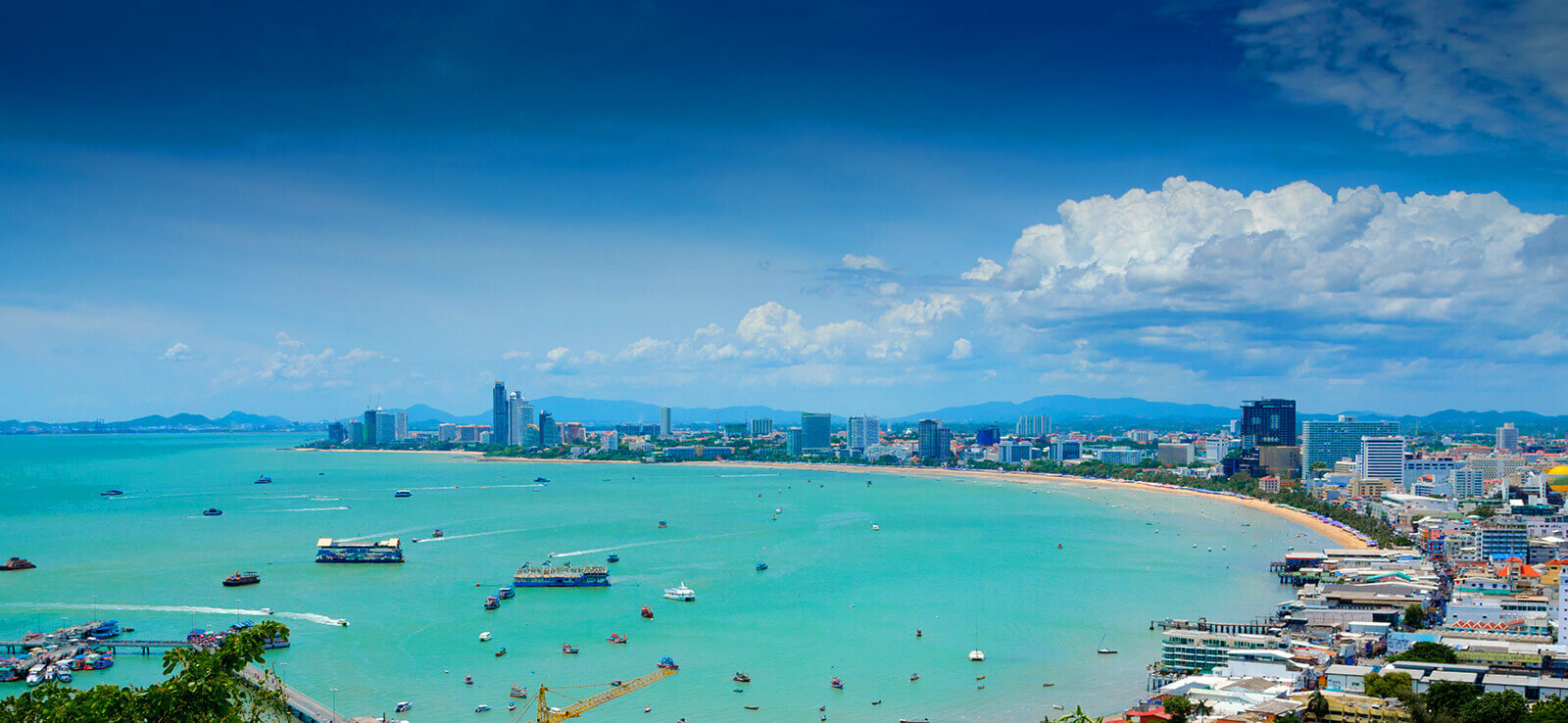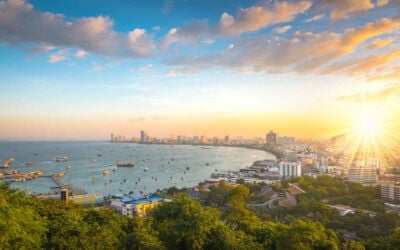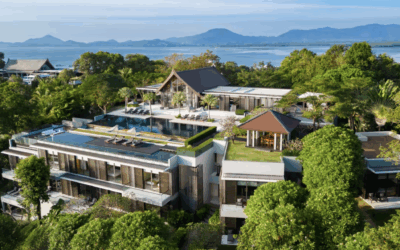Last updated October 16th, 2024.
Arguably, making an offshore investment is one of the most effective ways to diversify your portfolio.
People tend to live inside a bubble, and often forget about the wide variety of investment options outside their home country’s borders.
The fact is: investors who diversify abroad will increase their earnings potential and enjoy greater diversification.
At the moment, emerging market stocks have attractive valuations compared to their Western European or North American peers.
If you’re making an offshore investment, expect higher dividend yields, more reasonable P/E ratios, among other differences.
Meanwhile, not all real estate markets in the world are equal. A luxury condo in downtown Kuala Lumpur, Malaysia will cost you only about US$3,000 per square meter – not bad for one of Southeast Asia’s most developed economies.
You can expect to pay even less, closer to $1,000 per square meter, in capital cities such as Tbilisi, Georgia and Phnom Penh, Cambodia
With all that said, lack of familiarity with foreign markets can lead to uninformed decisions. Below are three common, yet rarely-mentioned mistakes you should avoid when investing offshore.
Buying a Lifestyle Asset, Not an Investment
If you’re like many global investors, you probably first started out as a tourist.
Travelers often visit a country, enjoy themselves, notice condominium ads, and choose to invest in their new favorite holiday destination.
First though, you should understand exactly what you’re buying along with your own personal investment goals.
Do you want a second home, or are you looking for a yield-optimized investment?
Did you ever estimate the property’s returns, or do they not matter as much as having a pool in your backyard?
Granted, there aren’t any incorrect answers to those questions. Yet people will sometimes trick themselves into thinking they’re investing… when they actually bought a second home.
We’ve had people counter with the notion that property can be “both an investment and lifestyle purchase at the same time”. But separating an investment from your other assets is far more practical.
That’s because a good investment doesn’t necessarily make a good lifestyle purchase and vice-versa. For example, you may prefer living in a four-bedroom condo in a city where larger units have horrible rental yields.
Quite frankly, one shouldn’t buy an apartment on a Southeast Asian beach and call it an “investment” when they haven’t considered any alternatives.
Similarly, just because you are buying a real estate in a so-called emerging market does not necessarily mean it’ll quickly appreciate in value either. Not every emerging property market is growing.

This villa seems like a great place to spend time. Regardless, it isn’t really an investment with Phuket’s staggeringly high vacancy rates and net rental yields on large villas at below 3%.
Making Offshore Investments “The Easy Way”
Mutual funds and ETFs (exchange traded funds) are definitely the most common vehicles that people trade international stocks through.
Funds and ETFs let you passively invest in emerging markets with less effort, using an existing stock broker in your home country.
Large and smaller investors alike pump billions into mutual funds and ETFs each year because of their convenience. You might already own shares in a similar fund.
However, while emerging and frontier market ETFs are simple and user-friendly, they’re perhaps the worst methods of investing offshore.
Why are such funds and ETFs a poor choice? One important reason is that most of these funds don’t even invest in their namesake and are falsely advertised.
For example, the iShares MSCI Emerging Markets ETF is the biggest fund of its type. A significant amount of its holdings (about 40%) are in developed markets including South Korea, Taiwan, and Qatar though.
Likewise, investors will often buy stocks in Asia using a brokerage based in their home country. It might be convenient, yet this also subjects you to massive fees.
Brokers charge extremely high commission rates on international trades. In another article, we discovered that one single trade on the Hong Kong Stock Exchange costs $32 through a major online brokerage in the United States, but under $1 through a local account.
The best offshore investments require some amount of your personal time and effort – at the very least a few hours spent on research.
You might even spend money using local, on-the-ground solutions like an setting up an offshore brokerage account or getting custom legal advice. Thankfully, the end-result is a superior investment portfolio.
Picking the Wrong Countries
We noted further above that many international investors begin as tourists. Or at least lived in a foreign country before investing there.
As such, they tend to see through rose-tinted along with an unhealthy dose of bias. Their lack of objectivity leads to rash, ill-informed choices.
This problem can manifest itself in several ways. Investors frequently buy property or stocks in a certain country only because they personally enjoy living there.
Needless to say, your positive experiences in a tourist destination don’t necessarily mean that owning real estate nearby is a solid investment.
In similar cases, people won’t ever consider all their options before making an international investment.
For example, they’ll buy a condo in Thailand without ever comparing prices, rental yields, and appreciation potential with nearby countries like Malaysia or Cambodia.
And they usually don’t even care, since they already decided to buy real estate in a specific country for their own personal reasons.
But that isn’t truly investing: it’s buying a second home. Or maybe a trophy asset.
Either way, consider an optimized balance of risk and return if your goal is to make profit with your investment. Getting trapped by the alure of “offshore” by itself is never a good idea.
Skip the Next Western Recession
Learn the best places to invest - and where to avoid - by downloading our free Investment Cheat Sheet.







